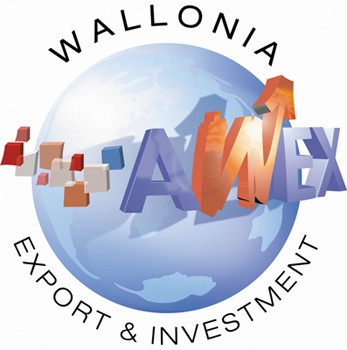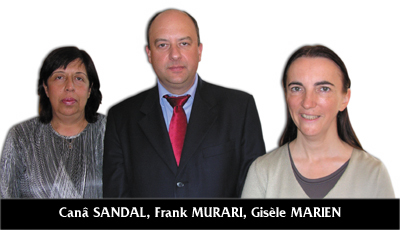| FRANK MURARI |
|
WALLONIA |

 A European Hub
Wallonia is at the heart of the European market which will have more than 500 million consumers. At the gateway to Brussels, capital of the European Union,
it is the focal point for trade and an ideal location for foreign investors. In addition to the advantages of its ideal geographical location, it can offer businesses an efficient communications network and a superb logistics infrastructure.
A European Hub
Wallonia is at the heart of the European market which will have more than 500 million consumers. At the gateway to Brussels, capital of the European Union,
it is the focal point for trade and an ideal location for foreign investors. In addition to the advantages of its ideal geographical location, it can offer businesses an efficient communications network and a superb logistics infrastructure.
Area : 16,844 km2
Roads : 8,346 km
Motorways : 842 km
Railways : 1,594 km
Waterways : 460 km
An exceptional motorway network
The region boasts the densest and probably one of the best equipped motorway networks in the world, and it is linked directly to neighbouring countries. Some 130 industrial zones are served throughout the region, where thousands of companies are established.
A functional and rapid rail network
This network is intelligently linked to other means of communication. The high-speeed TGV train connection with Paris, London via the Channel Tunnel and Cologne has tremendously increased the accessibility to the region. In fact, the shores of the Mediterranean sea, the North Sea, the Ruhr basin and even the Thames can be easily reached.
Airports
Wallonia have two international airports Liège and Charleroi BSCA.
A talent for innovation
Enthusiastically embracing leading-edge technologies, the steel, chemical, glass and textile industries have installed sophisticated tools and diversified their production. As a result their companies are now amongst the world leaders.
Wallonia, with its nine university centres of learning housing 300 research centres and 11.000 researchers, is world-renowned for being innovation-and research driven. Its three Nobel Prizes attest to that. Original, creative, technologie-intensive, good value for money... Wallonias expertly-designed and-manufactured products are competitive on all points with the worlds best and its productivity is amongst the highest in the world.
Small and medium-sized firms now make up 95 % of the regional economic base. Wallonias centres of excellence now lie in new ceramic materials, computing, microelectronics, petrochemicals, biotechnology, aerospace, the printing/ publishing, biomedical, pharmaceutical and food industries and telecommunications. The information and communication technology market is growing by 10 % a year and is supported by 2.500 graduates.
The Marshall Plan
In August 2005, the Wallonia government presented a revival plan aimed at regenerating Wallonias economy. This one billion euro project known as the Plan Marshall.